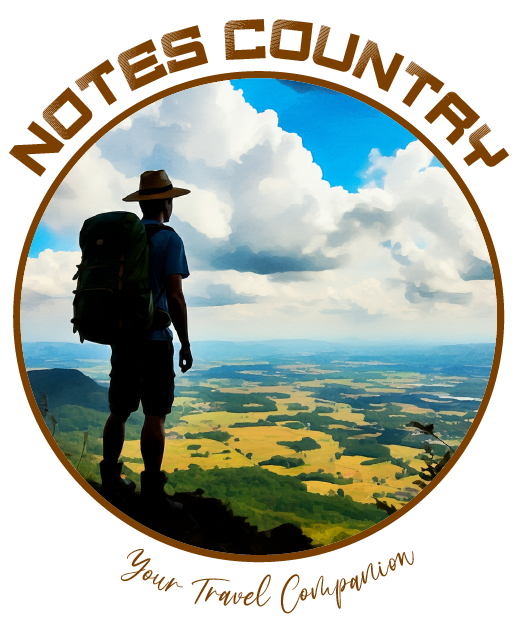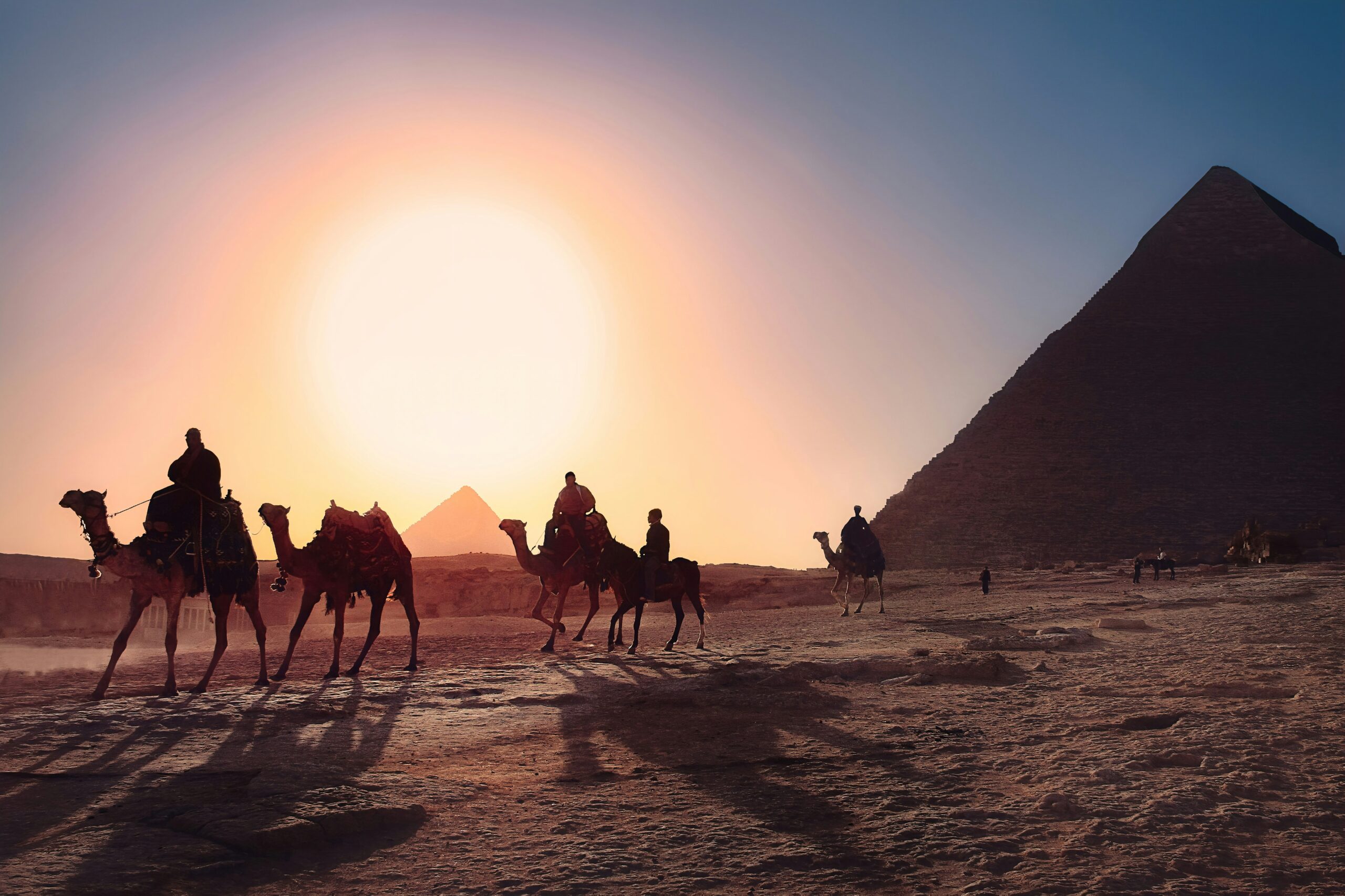Egypt, with its rich history and ancient civilizations, offers a plethora of tourist attractions. Here are some of the most popular cities and regions:
Cairo
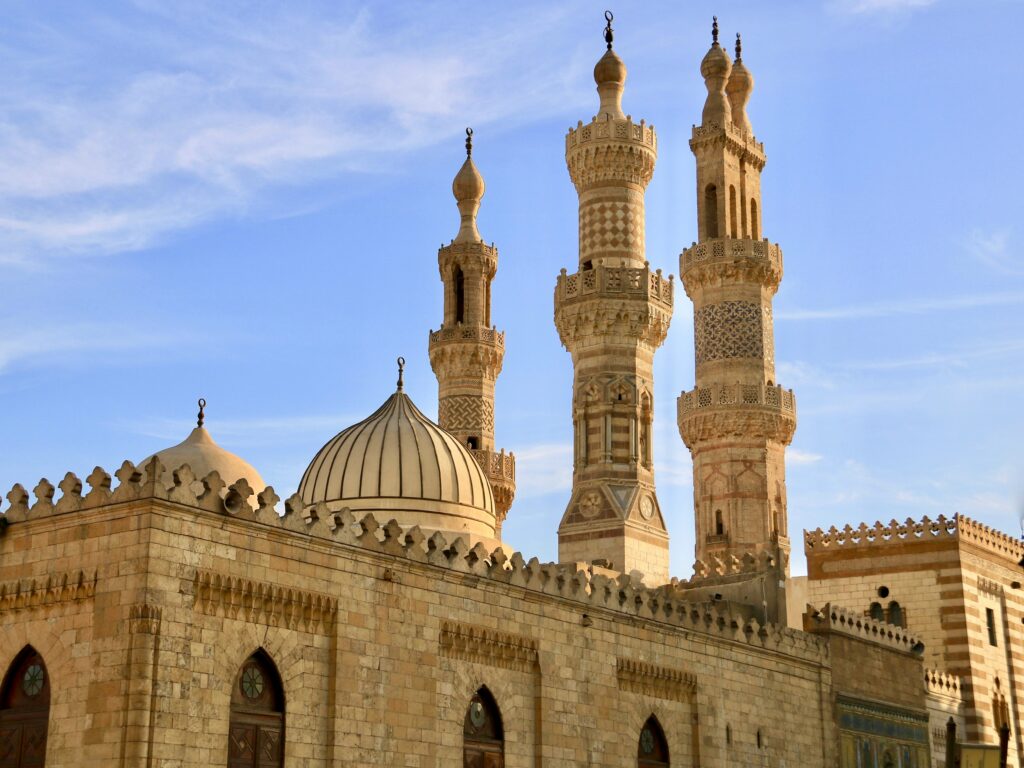
- Pyramids of Giza: One of the Seven Wonders of the Ancient World, these iconic structures are a must-see for any visitor to Egypt.
- Egyptian Museum: Home to an extensive collection of ancient Egyptian artifacts, including the famous mask of Tutankhamun.
- Coptic Cairo: The historic Christian quarter of Cairo, featuring churches, monasteries, and the Hanging Church.
- Khan el-Khalili Bazaar: A bustling market filled with shops selling everything from souvenirs to spices.
Luxor
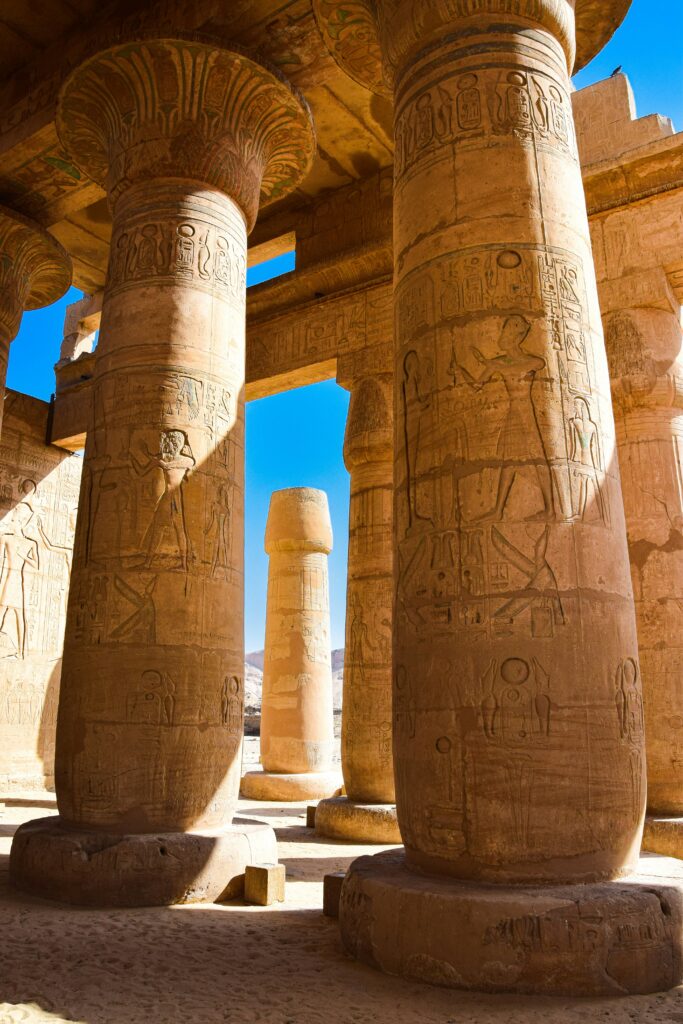
- Valley of the Kings: A vast necropolis where many pharaohs and their families were buried.
- Temple of Karnak: One of the largest and most impressive temple complexes in the world.
- Temple of Luxor: A magnificent temple dedicated to the gods Amun, Mut, and Khonsu.
- West Bank: Home to the Valley of the Queens, the Valley of the Nobles, and the Colossi of Memnon.
Aswan
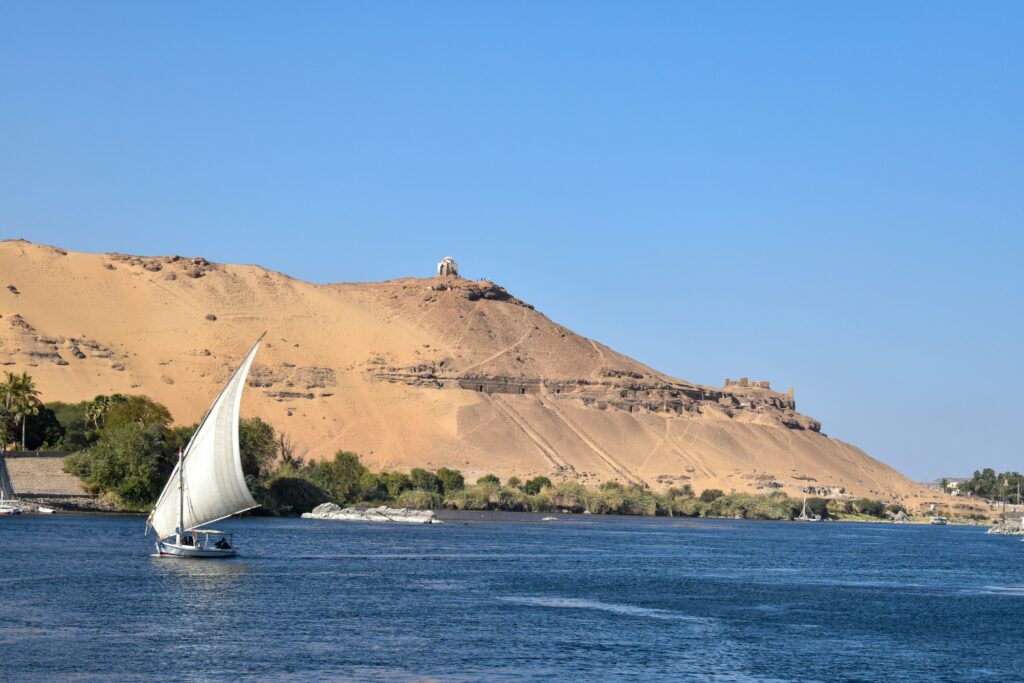
- Aswan High Dam: A massive dam that controls the Nile River’s flow and provides hydroelectric power.
- Philae Temple: A beautiful temple relocated to an island on Lake Nasser after it was threatened by flooding.
- Kom Ombo Temple: A unique double temple dedicated to the gods Sobek and Horus.
- Abu Simbel: Two massive rock-cut temples dedicated to the pharaoh Ramses II.
Alexandria
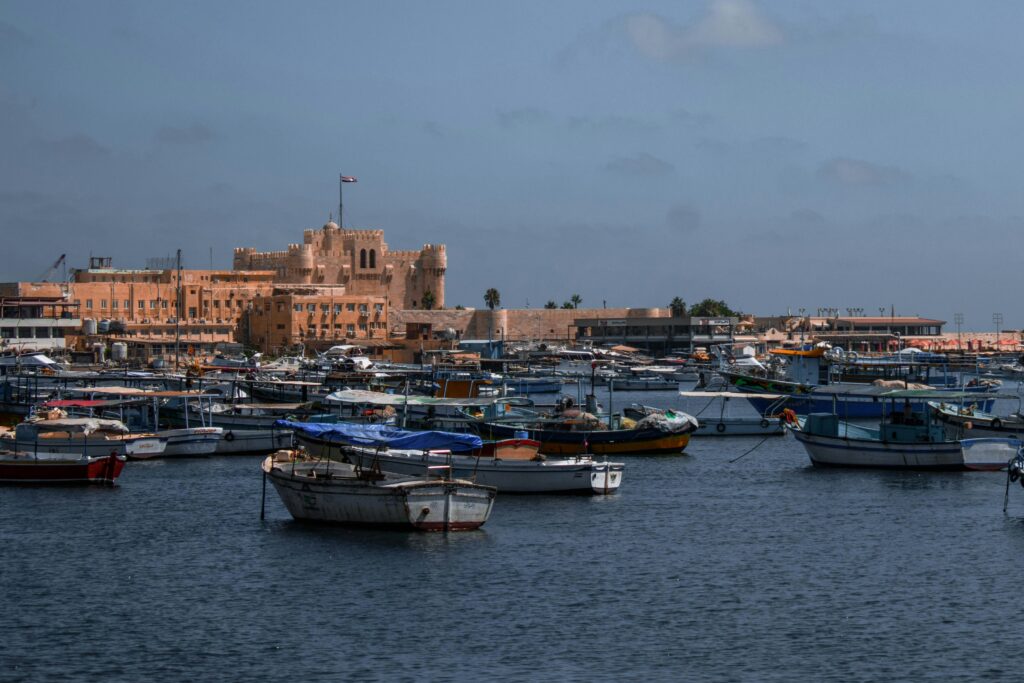
- Pompey’s Pillar: A Roman column commemorating the victory of Pompey the Great over Caesar.
- Catacombs of Kom el-Shuqqa: Ancient underground tombs with intricate carvings.
- Fort Qaitbay: A fortress built on the site of the ancient lighthouse of Alexandria.
- Bibliotheca Alexandrina: A modern library and cultural center designed to resemble the ancient Library of Alexandria.
Red Sea Coast
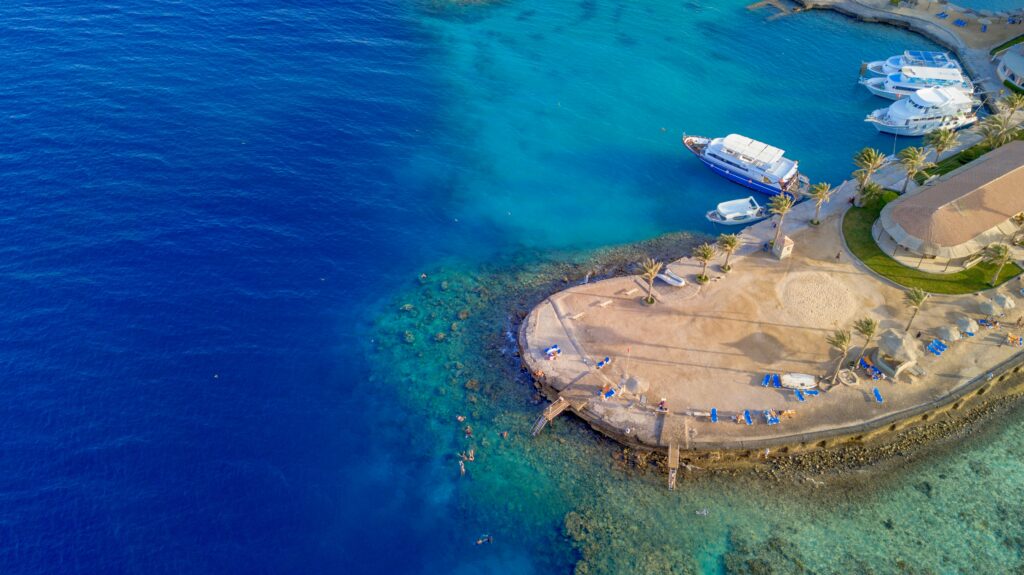
- Hurghada and Sharm El Sheikh: Popular beach resorts offering diving, snorkeling, and water sports.
- Ras Mohammed National Park: A marine protected area with diverse coral reefs and marine life.
- St. Catherine’s Monastery: One of the oldest monasteries in the world, located at the foot of Mount Sinai.
These are just a few of the many tourist attractions that Egypt has to offer. With its rich history, stunning landscapes, and friendly people, Egypt is a truly unforgettable destination.
When planning a trip to Egypt, there are several important things to consider to ensure a smooth and enjoyable experience. Below is a detailed guide tailored specifically for Egypt:
1. Travel Documents
- Visa: Most nationalities can obtain a visa on arrival at Egyptian airports or apply for an e-visa online prior to travel. Ensure you check visa requirements for your specific nationality. The visa is typically valid for 30 days.
- Passport: Your passport should be valid for at least six months beyond your arrival date in Egypt.
- Travel Insurance: It is highly recommended to have travel insurance that covers medical expenses, repatriation, and potential trip disruptions like lost luggage or cancellations.
2. Entry Requirements
- COVID-19: Egypt has relaxed most COVID-19 entry restrictions, but it’s always advisable to check for any last-minute updates on testing or vaccination requirements.
- Customs Regulations: Importing or possessing certain items like drugs, pornographic material, and publications deemed offensive to Islam is strictly prohibited.
3. Health Conditions
- Vaccinations: While no specific vaccinations are required, it’s recommended to be up-to-date on vaccinations for hepatitis A, hepatitis B, typhoid, and tetanus. If you plan to visit rural areas or stay for an extended period, consult your doctor about additional vaccinations.
- Medical Assistance: Major cities like Cairo and Alexandria have good hospitals and clinics. However, outside the main urban areas, healthcare facilities may be limited. It is advisable to have health insurance that covers emergencies.
- Water Safety: Tap water in Egypt is not safe to drink. Stick to bottled water, and avoid ice in drinks unless you know it’s made from bottled or purified water.
4. Currency and Payment Methods
- Local Currency: The currency is the Egyptian pound (EGP). It is advisable to carry cash in small denominations, especially for markets, taxis, and tips. ATMs are widely available in major cities and tourist areas.
- Credit Cards: Credit cards (Visa and Mastercard) are widely accepted in hotels, larger restaurants, and shopping malls. However, smaller shops, markets, and some restaurants may only accept cash, so always have some on hand.
5. Language and Culture
- Local Language: Arabic is the official language, but many people in tourist areas speak English, especially in cities and major tourist sites. Learning a few basic Arabic phrases can be helpful and appreciated by locals.
- Culture and Customs: Egypt is a predominantly Muslim country with strong cultural traditions. Dress modestly, especially when visiting religious sites. For women, covering shoulders and wearing longer skirts or pants is recommended when outside tourist resorts. Always ask permission before taking photos of people.
6. Safety
- Areas to Avoid: Egypt is generally safe for tourists, especially in tourist-heavy areas like Cairo, Luxor, and Sharm El Sheikh. However, it is advisable to avoid regions near the Libyan border, the Sinai Peninsula (except for the resort areas), and other areas identified in government travel advisories.
- Scams and Fraud: Be cautious of unofficial guides offering tours at tourist sites. Only use certified guides and beware of overcharging or persistent vendors. Ensure that taxis use meters or agree on a price beforehand.
7. Weather and Clothing
- Seasons: Egypt’s climate varies depending on the region. Cairo and the Nile Valley are hot during the summer (May to September), while the winter months (December to February) are milder. The desert regions, including the Western Desert and Sinai, can experience very cold nights in winter.
- Clothing: Pack lightweight and breathable clothing for hot days, as temperatures can soar in summer. Always bring sunscreen, a hat, and sunglasses to protect against the strong sun. Modest clothing is appreciated, especially in rural or non-tourist areas.
8. Transportation
- Public Transport: Egypt has a range of transportation options. The train network between Cairo, Luxor, and Aswan is a popular and affordable way to travel. Buses and taxis are also widely available in cities. For shorter trips, Uber operates in Cairo and Alexandria.
- Driving: If you plan to rent a car, be prepared for chaotic driving conditions, especially in Cairo. Many roads in Egypt have little signage, and traffic can be unpredictable. An international driving permit is recommended.
9. Accommodation
- Hotels and Resorts: Egypt offers a wide range of accommodations, from luxurious hotels in Cairo and resorts in the Red Sea to budget-friendly hostels and guesthouses. Riads (traditional homes) are also available in some areas like Cairo and Luxor. Make sure to book in advance if traveling during peak tourist season.
- Local Standards: While many hotels provide Western-style amenities, be mindful that some budget accommodations may lack things like air conditioning, hot water, or reliable Wi-Fi.
10. Emergency Numbers
- Embassies: Make sure to note the address and contact details of your country’s embassy or consulate in Cairo.
- Emergency Numbers: In case of emergency, the general police number is 122, fire services 180, and medical emergencies 123.
11. Internet and Telephony
- Local SIM Cards: You can buy a prepaid SIM card from local providers like Vodafone, Orange, or Etisalat at the airport or in the cities. SIM cards are inexpensive and offer affordable data plans, which can be useful for navigating or staying connected.
- Wi-Fi: Wi-Fi is widely available in hotels, restaurants, and cafés in tourist areas, but can be unreliable in rural locations. Consider having a local SIM with data for better connectivity.
- Electrical Adapters: Egypt uses types C and F plugs (common in Europe), with a voltage of 220V. If your devices require a different plug type, bring an adapter.
12. Working Hours and Public Holidays
- Business Hours: Most shops and businesses open from 10 a.m. to 9 p.m., though some close for the midday prayer. Fridays, the Muslim holy day, may affect the operating hours of some businesses. During Ramadan, many shops, restaurants, and government offices operate on reduced hours.
- Public Holidays: Keep in mind public holidays such as Eid al-Fitr and Eid al-Adha, as many businesses, government offices, and tourist attractions may be closed.
13. Tipping (Baksheesh)
- Tipping, known as baksheesh, is a common practice in Egypt. In restaurants, a 10% tip is typical, though sometimes a service charge is already included. Porters, drivers, and guides also expect small tips, typically 5–10 Egyptian pounds.
14. Cultural and Social Connections
- Egyptians are generally very welcoming and friendly. When interacting with locals, especially in rural areas or religious sites, be mindful of cultural norms regarding physical touch, conversation topics, and modest dress.
15. Healthcare and Emergencies
- Pharmacies: Pharmacies are widespread in cities and tourist areas, and many over-the-counter medications are available. If you take prescription medication, bring enough for the duration of your stay, as some medications may not be easily accessible.
- Medical Assistance: Some travel insurance companies offer 24/7 medical assistance hotlines. Keep these numbers handy in case of any emergency.
By following these guidelines, you can ensure a well-prepared and enjoyable trip to Egypt. The country offers a rich history, stunning landscapes, and a vibrant culture, so being prepared will help you fully appreciate all that Egypt has to offer.
